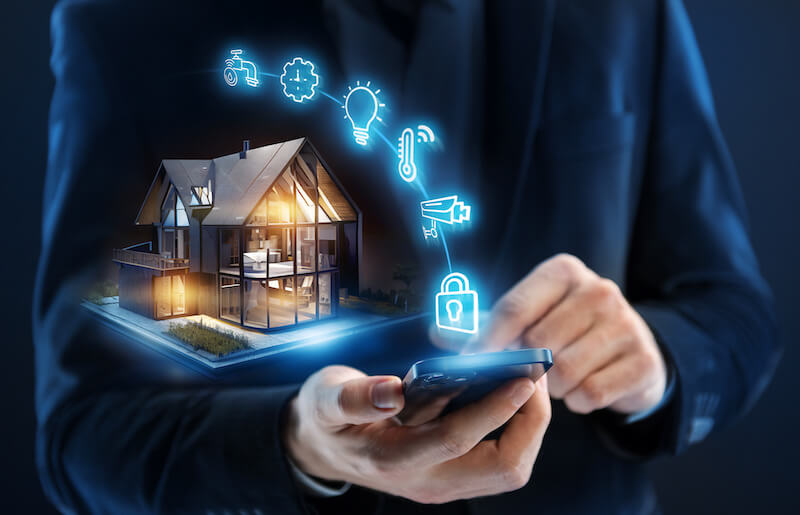Rise by Six: Your Daily Dose of Inspiration
Explore insights and stories that elevate your day.
When Your Home Becomes a Mind Reader
Discover the eerie ways your home anticipates your needs! Uncover the secrets of a house that feels alive and in tune with your thoughts.
How Smart Homes Are Anticipating Your Needs: The Future of Home Automation
The concept of smart homes has evolved dramatically in recent years, transforming from simple automation to an ecosystem that anticipates your needs. With the integration of advanced technologies like artificial intelligence (AI) and the Internet of Things (IoT), homes are becoming increasingly intuitive. Smart devices can learn from your habits, adjusting lighting, temperature, and even security settings without requiring manual input. For instance, a smart thermostat can analyze your daily routines and optimize energy consumption, ultimately saving you money while enhancing comfort.
As we look towards the future of home automation, the focus will increasingly be on personalization and seamless integration. Imagine a home that recognizes when you're approaching and prepares for your arrival by adjusting the HVAC system, turning on the lights, and even playing your favorite music. This level of convenience is made possible through machine learning algorithms that process data from various sensors and user interactions. As technology continues to advance, the potential for smart homes to create a more personalized living environment will only grow, making our daily lives easier and more efficient.

Is Your Home Listening? Understanding Smart Technology and Privacy
In today's digital age, the integration of smart technology in our homes has transformed the way we live. From smart speakers to security systems, these devices offer convenience and efficiency. However, as we embrace these innovations, it's crucial to consider their implications for our privacy. Many smart devices are equipped with microphones and cameras, enabling them to listen and observe our activities. This raises the question: is your home secretly listening to your conversations? Users must understand the potential risks associated with these technologies and how they can protect their personal information.
To safeguard your privacy while enjoying the benefits of smart technology, consider implementing the following tips:
- Review Device Settings: Regularly check and adjust the privacy settings of your smart devices to limit data sharing.
- Use Strong Passwords: Ensure that all connected devices have strong, unique passwords to prevent unauthorized access.
- Be Aware of Usage: Understand what data is being collected by your devices and how it is used, as many manufacturers provide transparency reports.
By taking these proactive measures, you can help ensure that your home remains a safe space, free from unwanted surveillance.
Can Your House Predict Your Mood? The Psychology Behind Smart Living Spaces
The concept of smart living spaces goes beyond mere convenience; it taps into the intricate relationship between our environment and our emotional well-being. Recent studies suggest that the layout, design, and even the colors of our homes can significantly influence our mood. For instance, spaces that are clutter-free and well-organized often promote feelings of calm and clarity, while chaotic environments may contribute to stress and anxiety. Understanding how our surroundings impact our mental state can empower us to create a home that not only meets our functional needs but also enhances our emotional health.
Incorporating smart technology into our living spaces can further elevate this relationship. Devices that adjust lighting, temperature, and even sound can be tailored to foster specific moods. For example, soft, warm lighting can induce relaxation, while brighter lights can boost energy and productivity. By leveraging technology, we can create an adaptive environment that responds to our emotional needs in real-time. This not only personalizes our space but also encourages a deeper awareness of how our physical surroundings impact our feelings, effectively allowing our homes to predict and enhance our mood.